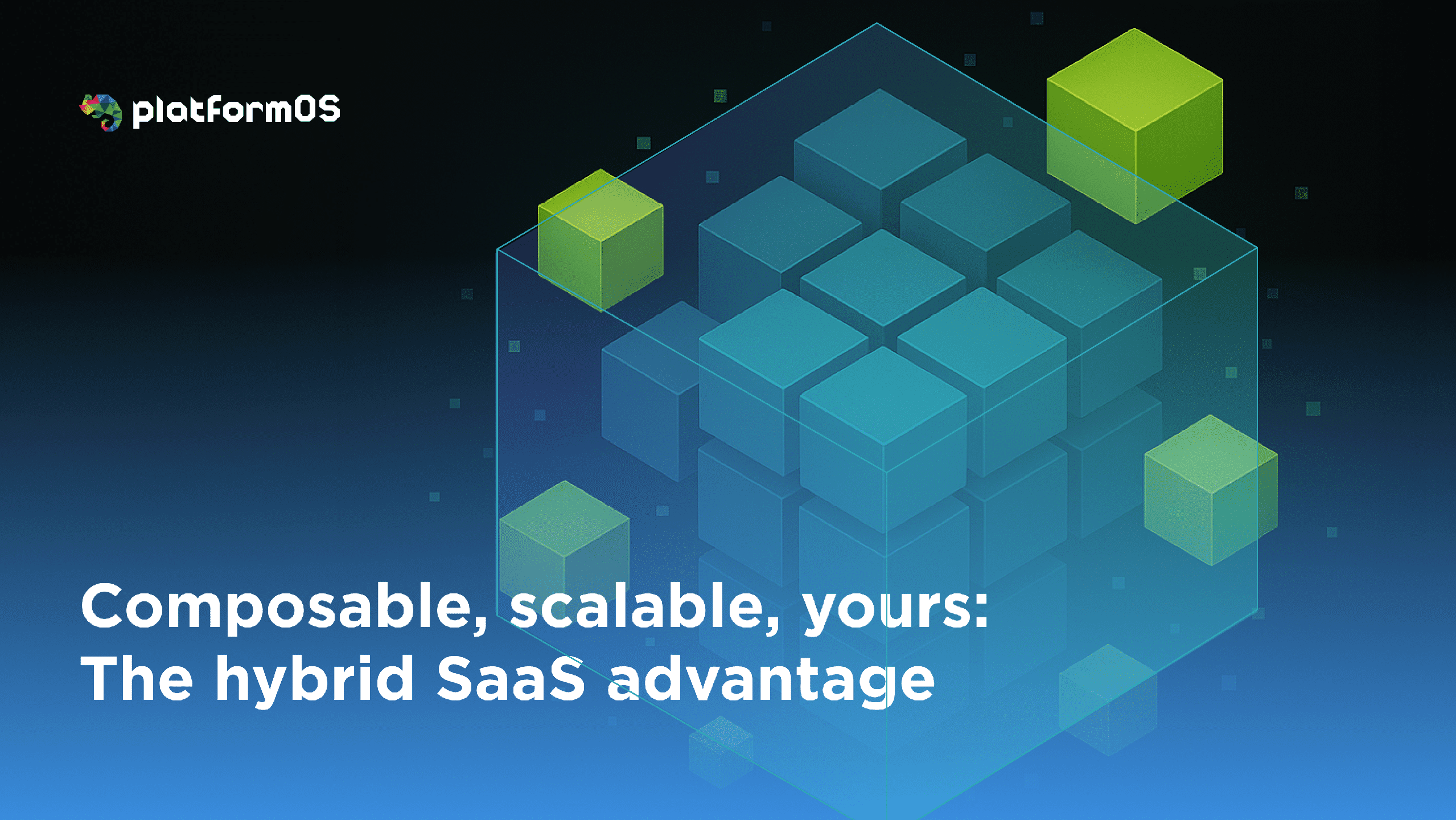





For many growing companies, the promise of Software-as-a-Service (SaaS) has always been clear: faster onboarding, lower upfront costs, and minimal infrastructure management. However, as business models become increasingly complex and customer expectations rise, the limitations of traditional SaaS are becoming impossible to ignore.
Off-the-shelf software was built for the average use case. Rigid “commoditized” workflows. Limited customization. Costly workarounds. And you don't own the code or control the schema! You’ve probably experienced it: bending your operations to fit the software, instead of the other way around. And when your market changes or your team scales, that “convenient” SaaS tool becomes a blocker.
That’s where hybrid SaaS enters the picture.
Hybrid SaaS combines the scalability and convenience of traditional SaaS with the freedom of custom development. You get core components out of the box (user management, security, APIs) but have full control over the front end, can define the schema that's needed, build real-world features and any integrations. You’re not stuck within a rigid template. You’re building something that actually fits your specific needs AND fully in control of your destiny.
Modern fast-moving companies need to act quickly and stand out. Whether launching a customer portal, enabling AI Agent functionality, internal dashboard, or a full SaaS product, hybrid SaaS helps teams innovate without starting from scratch. It enables faster time-to-market than fully custom builds and reduces long-term maintenance costs.
Legacy SaaS platforms often lock you into:
Here’s a quick side-by-side comparison:
With platformOS, you don’t have to choose between speed and control. You get the best of both worlds: the immediate value of a working product, managed infrastructure, built-in DevOps automation, and a user interface for configuring your system. And importantly multi-tenanted server environments either private or shared.
But when your business outgrows the built-in tools (when you need a unique integration or new behavior) platformOS lets you extend your application by modifying the source code directly, within a secure, sandboxed runtime environment called an Instance. You’re no longer stuck waiting for vendor updates or relying on fragile workarounds. It’s SaaS when you want it, custom when you need it.
platformOS gives you everything you need to build and scale flexible SaaS products:
You start with a composable, API-first architecture and access to powerful DevOps and CI/CD tools. Secure data handling, including native Vector database for AI embeddings and multi-tenancy are built in. Reusable modules let you move fast without compromising structure. Branding and UI are entirely under your control, and you can build on top of our constantly updated Design System to accelerate development while maintaining a consistent, high-quality user experience. And when your team needs to go beyond standard configuration, platformOS provides the flexibility to add custom features and integrations on your terms, without compromising stability or speed.
Whether you’re digitizing internal workflows, updating legacy systems, adding AI Agent support on top of a monolithic solution, or launching your own SaaS product, platformOS lets you do it without compromise.
Ensure your project’s success with the power of platformOS.